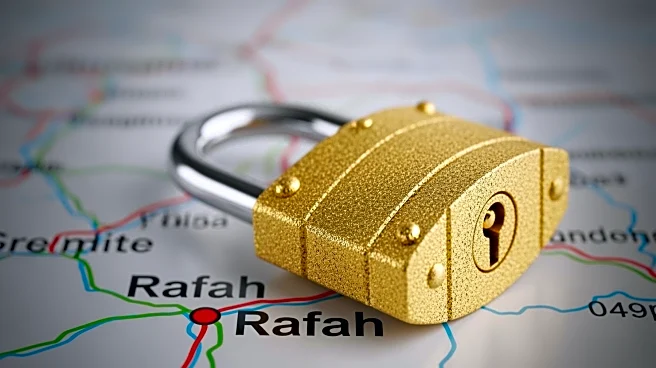What's Happening?
The Rafah border crossing between Gaza and Egypt will remain closed, as confirmed by the office of Prime Minister Netanyahu. This decision comes despite earlier announcements from the Palestinian embassy in Egypt that the crossing would reopen. The closure
is contingent upon Hamas fulfilling its obligations related to the return of hostages' remains and adhering to an agreed-upon framework. The Rafah crossing is a critical point for the movement of people and goods between Gaza and Egypt, and its status is often a focal point in the broader Israeli-Palestinian conflict. The current closure is set against the backdrop of a ceasefire between Israel and Hamas, highlighting the ongoing tensions and complex negotiations involved.
Why It's Important?
The closure of the Rafah border crossing has significant implications for the humanitarian situation in Gaza, affecting the movement of people and essential goods. It underscores the fragile nature of the ceasefire and the delicate balance of negotiations between Israel and Hamas. The decision to keep the crossing closed reflects the broader geopolitical dynamics in the region, where security concerns and diplomatic negotiations are closely intertwined. For the residents of Gaza, the closure represents a continuation of the challenges they face in accessing resources and maintaining connections with the outside world. The situation also highlights the role of Egypt as a mediator in the conflict, balancing its diplomatic relations with both Israel and the Palestinian authorities.
What's Next?
The reopening of the Rafah crossing will depend on the progress of negotiations between Israel and Hamas, particularly regarding the return of hostages' remains. The international community, including Egypt, may continue to play a mediating role to facilitate dialogue and ensure compliance with the ceasefire terms. Observers will be watching for any shifts in the political landscape that could influence the decision to reopen the crossing. The situation remains fluid, with potential implications for regional stability and humanitarian conditions in Gaza.















